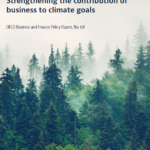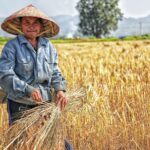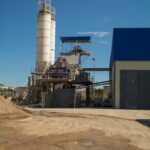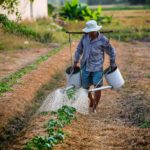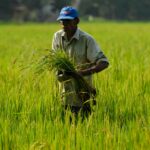By integrating sustainability considerations into their purchasing practices, corporate buyers can exert significant influence on agricultural commodity supply chains and contribute to mitigating environmental impacts and promoting human rights. Here’s how.
What are Agricultural Commodity Supply Chains?
Agricultural commodity supply chains refer to the systems and processes involved in the production, processing, distribution, and consumption of agricultural commodities. These supply chains encompass the entire journey of agricultural products from the farm to the end consumer or user. The agricultural commodity supply chain typically involves various stages and participants, including farmers, suppliers of agricultural inputs (such as seeds, fertilizers, and pesticides), agricultural producers or growers, processors, distributors, retailers, and consumers. Each stage plays a crucial role in ensuring the smooth flow of agricultural commodities. Here are the key stages in an agricultural commodity supply chain:
- Inputs and production: This stage involves the production of agricultural commodities, including growing crops or raising livestock. Farmers use various inputs like seeds, fertilizers, pesticides, machinery, and labor to cultivate their crops or rear livestock.
- Harvesting and post-harvest handling: Once the crops are ready for harvest or the livestock is raised for market, the next step involves harvesting the crops or preparing the animals for slaughter. Post-harvest handling activities like sorting, grading, cleaning, and packaging take place to maintain the quality of the commodities.
- Processing and value addition: Agricultural commodities often undergo processing to transform them into more desirable products. Processing can involve activities like milling, grinding, refining, canning, freezing, or extracting oils. Value addition may include packaging, labelling, and adding nutritional or functional components.
- Storage and warehousing: After processing, agricultural commodities may be stored in warehouses or silos to maintain their quality and prevent spoilage. Proper storage conditions, such as temperature and humidity control, are critical to preserve the commodities until they are ready for distribution.
- Transportation and logistics: Agricultural commodities need to be transported from production areas to processing facilities, distribution centres, and ultimately to retailers or consumers. Transportation methods can include road, rail, air, or sea, depending on the distance and perishability of the commodities. Logistics
- Distribution and retail: At this stage, the agricultural commodities are delivered to wholesalers, retailers, or food service providers. Wholesalers may distribute the commodities to retailers or directly to institutional buyers like restaurants and hotels. Retailers make the products available to consumers through grocery stores, farmers’ markets, or online platforms.
- Consumer consumption: The final stage involves the purchase and consumption of agricultural commodities by individuals or businesses. Consumers may use the commodities for personal consumption, industrial processing, or further value addition.
Throughout the agricultural commodity supply chain, there are additional factors to consider, such as quality control, regulatory compliance, traceability, sustainability, and market dynamics. Effective management of supply chains is essential to ensure food safety, minimize waste, optimize efficiency, and meet consumer demands in a timely manner.
Why Agricultural Supply Chains are so Critical to Significantly Improve Corporate Buyers ESG performance?
Agricultural supply chains deliver important impacts on biodiversity and can have positive or negative impacts on people in production areas. Up to 1/3 of carbon footprint can lie in this space. Most salient regulatory initiatives demanding buyers to ensure zero deforestation and zero human right violation can be tackled only when corporate buyers can directly engage and work with agricultural supply chain stakeholders. There is also a clear dependency on nature for many supply chains of products widely used by people: over 50% of the world’s total GDP is dependent on nature and its services. Dependency, however, needs to be better understood and reflected in how corporate buyers can clearly and effectively address the environmental and human right challenges pertaining to their very own agricultural commodity supply-chains.
What are the Environmental and Human Right Challenges of Agricultural Commodity Supply Chains?
Agricultural commodity supply chains face several environmental and human rights challenges.
- Deforestation: Agricultural expansion, particularly for commodities like soy, palm oil, and cattle, has been a major driver of deforestation in many regions. Forest clearance releases carbon dioxide, reduces biodiversity, disrupts ecosystems, and contributes to climate change.
- Water Pollution and Depletion: The use of agrochemicals, such as pesticides and fertilizers, can lead to water pollution through runoff, affecting both surface and groundwater quality. Additionally, inefficient irrigation practices in agriculture can deplete water resources, leading to water scarcity in certain areas.
- Soil Degradation: Unsustainable farming practices, including excessive tillage, overuse of fertilizers, and monocropping, can degrade soil quality, leading to erosion, nutrient depletion, and decreased agricultural productivity.
- Greenhouse Gas Emissions: Agricultural activities, such as enteric fermentation in livestock, use of synthetic fertilizers, and burning of agricultural residues, contribute to greenhouse gas emissions, exacerbating climate change.
- Biodiversity Loss: Conversion of natural habitats for agricultural purposes reduces biodiversity and disrupts ecosystems, leading to the loss of plant and animal species and the degradation of ecosystem services.
- Labor Rights and Working Conditions: Agricultural commodity supply chains often involve labour-intensive work. Many workers, particularly in developing countries, face poor working conditions, low wages, long hours, and lack of job security. There are also instances of child labour and forced labour in certain agricultural sectors.
- Land Rights and Displacement: Large-scale agricultural expansion can result in land grabbing, where communities, particularly indigenous peoples and small-scale farmers, are forcibly displaced from their ancestral lands without proper compensation or consent.
- Health and Safety: Exposure to agrochemicals and pesticides poses health risks to farmers and agricultural workers. Lack of proper training, protective equipment, and inadequate regulations can further exacerbate these risks.
- Access to Resources: Small-scale farmers often face challenges in accessing credit, inputs, markets, and information, limiting their ability to compete in agricultural commodity supply chains.
- Community Impacts: Agricultural activities, such as the construction of irrigation systems or the diversion of water resources, can impact local communities by altering traditional livelihoods, affecting food security, and causing social conflicts.
Addressing these challenges requires collaboration among stakeholders, including governments, companies, civil society organizations, and consumers. Ksapa combines consulting, digital and hands-on programs enabling to work on several initiatives such as sustainable certifications, responsible sourcing policies, improved regulations, and investment in sustainable agriculture practices. These initiatives help mitigate the environmental and human rights impacts of agricultural commodity supply chains.
Why Corporate Buyers Must Address These Challenges?
- Risk Mitigation: Environmental and human rights challenges pose significant risks to corporate buyers. These risks include reputational damage, regulatory non-compliance, legal liabilities, and disruptions in supply chain operations. By addressing these challenges proactively, buyers can mitigate these risks and safeguard their business interests.
- Sustainability Commitments: Many corporate buyers have made commitments to sustainability, climate, responsible sourcing, and ethical business practices. Addressing environmental and human rights challenges in agricultural supply chains is essential to fulfil these commitments and demonstrate a genuine commitment to sustainability.
- Stakeholder Expectations: Stakeholders, including consumers, investors, employees, and civil society organizations, increasingly expect businesses to operate responsibly and address environmental and social concerns. Failure to address these challenges can lead to reputational damage, loss of customers, and decreased investor confidence.
- Legal and Regulatory Compliance: Governments are enacting stricter regulations and laws related to environmental protection, labour rights, and responsible sourcing. Corporate buyers need to ensure compliance with these regulations to avoid legal consequences and maintain their social license to operate. This can include several human right laws (UK, Canada, France, Germany among others), as well as zero deforestation and climate related initiatives (EU’s CS3D, EU’s CSRD among others).
- Social Responsibility and Ethics: Corporate buyers have a moral and ethical obligation to respect human rights, protect the environment, and contribute positively to society. Addressing environmental and human rights challenges in supply chains is an essential part of fulfilling this responsibility and promoting ethical business practices.
- Sustainable Development Goals (SDGs): The United Nations Sustainable Development Goals provide a global framework for sustainable development. Addressing environmental and human rights challenges in agricultural supply chains contributes to several SDGs, including no poverty, zero hunger, decent work and economic growth, responsible consumption and production, and climate action.
- Long-term Business Resilience: Sustainable and responsible supply chains are more resilient in the face of environmental, social, and economic challenges. By addressing these challenges, corporate buyers can build stronger and more resilient supply chains, ensuring the long-term viability and competitiveness of their business.
- Positive Impact: By addressing environmental and human rights challenges, corporate buyers can drive positive change and contribute to sustainable development. They have the opportunity to improve the livelihoods of farmers and workers, conserve natural resources, protect ecosystems, and promote social well-being in the communities where they operate.
Addressing environmental and human rights challenges in agricultural commodity supply chains is not only a business imperative but also a moral and ethical responsibility. By taking proactive measures, corporate buyers can mitigate risks, meet stakeholder expectations, ensure compliance, and contribute to a more sustainable and equitable future.
How Corporate Buyers Can Address the Environmental and Human Right Challenges of Agricultural Commodity Supply Chains?
Working with Ksapa and its Sutti suite of programs, corporate buyers can act in several ways:
- Supply Chain Transparency: Corporate buyers can promote transparency by mapping their supply chains and identifying the origins of their agricultural commodities. This involves understanding the farms, processors, and intermediaries involved in the supply chain. Transparency enables better identification of environmental and human rights risks and facilitates targeted interventions.
- Supplier Engagement and Capacity Building: Corporate buyers can engage with their suppliers, including farmers, processors, and other intermediaries, to promote sustainable practices. This can involve providing training and capacity-building programs on sustainable agriculture techniques, responsible labor practices, and environmental management. By supporting their suppliers, corporate buyers can drive positive change throughout the supply chain.
- Sustainable Sourcing Criteria: Corporate buyers can establish and communicate clear sustainability criteria for their suppliers. These criteria can include environmental benchmarks (e.g., deforestation-free, water conservation, reduced pesticide use), adherence to labour rights and fair labour practices, and respect for land rights and local communities. By setting such standards, corporate buyers incentivize their suppliers to adopt sustainable practices.
- Certification and Verification: Corporate buyers can prioritize sourcing from certified sustainable agriculture programs, such as those accredited by reputable third-party organizations. Certification schemes like Rainforest Alliance, Fairtrade, and Organic provide assurance of environmental and social standards. Buyers can also support initiatives that promote traceability and verification systems to ensure compliance with sustainability commitments.
- Collaboration and Partnerships: Corporate buyers can collaborate with industry peers, civil society organizations, and governments to address common challenges collectively. This can involve joining multi-stakeholder initiatives, sustainability platforms, or roundtables focused on specific commodities or supply chain issues. By working together, stakeholders can share best practices, align sustainability goals, and advocate for systemic changes.
- Investment and Incentives: Corporate buyers can provide financial support and incentives to suppliers who demonstrate commitment to sustainable practices. This can include financial assistance for implementing sustainable agriculture techniques, access to credit, and longer-term contracts that provide stability for farmers. By investing in sustainable production, buyers can foster long-term relationships and create economic incentives for suppliers to adopt sustainable practices.
- Continuous Monitoring and Reporting: Corporate buyers can implement robust monitoring and evaluation systems to track the sustainability performance of their supply chains. Regular reporting on environmental and social indicators can demonstrate progress, identify areas for improvement, and enhance accountability.
- Consumer Education and Awareness: Corporate buyers can educate consumers about the environmental and social impacts of agricultural commodity supply chains. Through transparent communication and labelling, buyers can help consumers make informed choices and support sustainable products. This can create demand for responsibly sourced commodities and drive positive change throughout the supply chain.
Industrial buyers and companies are under major pressure to demonstrate positive impact – both locally and across the value chain. They must demonstrate concrete efforts to mitigate the socio-environmental and Human Rights risks attached to sourcing raw materials.
By integrating sustainability considerations into their purchasing practices, corporate buyers can exert significant influence on agricultural commodity supply chains and contribute to mitigating environmental impacts and promoting human rights.
Ksapa’s goal is to deliver durable impact at scale across agricultural value chains. To do so, we have designed a suite of solutions, we called SUTTI to help you:
- Drive the adoption of better practices, revenue increase, activity diversification and financial literacy amongst smallholders.
- Effectively scale such programmes by combining traditional and digital tools.
- Innovate new economic / financial model to drive the y scale impactful economic models.
Contact us and learn more about our solutions helping to deploy cost effective solutions improving resilience and compliance of agricultural supply chain around the world.
Président et Cofondateur. Auteur de différents ouvrages sur les questions de RSE et développement durable. Expert international reconnu, Farid Baddache travaille à l’intégration des questions de droits de l’Homme et de climat comme leviers de résilience et de compétitivité des entreprises. Restez connectés avec Farid Baddache sur Twitter @Fbaddache.
-
Farid Baddache
-
Farid Baddache
-
Farid BaddacheSeptember 29, 2023
-
Farid Baddache
-
Farid Baddache
-
Farid Baddache
-
Farid Baddache
-
Farid Baddache
-
Farid Baddache

Christèle Delbé
Christèle is leading engagement with companies on responsible sourcing solutions, driven by our SUTTI programs, and sustainable supply chain consulting.
For 20 years, Christèle has been unlocking commercial benefits across food, technology and non-profit sectors by pioneering strategic initiatives and shifting behaviour. Former Group head of sustainability for 14 years at Orange and Vodafone with strong interest exploring how best to leverage technologies to innovate and provide scalable solutions to human rights, carbon, waste, packaging and responsible supply chains and consumption. For the past 7 years, Christèle moved more closely to food and commodities and has been driving multi-sector partnerships for food value chains with Bonsucro, Danone, Diageo, GPSNR, ISEAL, PepsiCo, Producers Direct, RSPO, Tetra Pak, Unilever and Vodafone.
Christèle speaks English, French and Spanish.






































